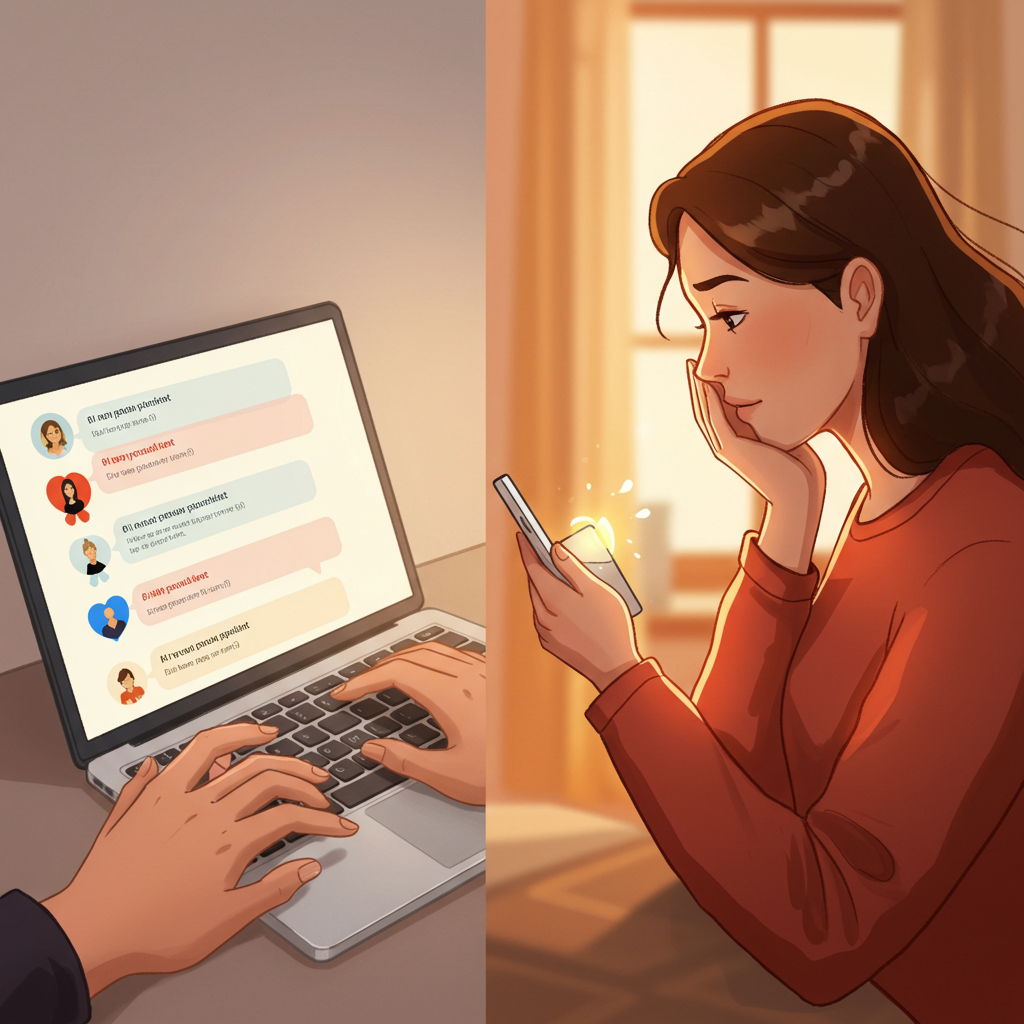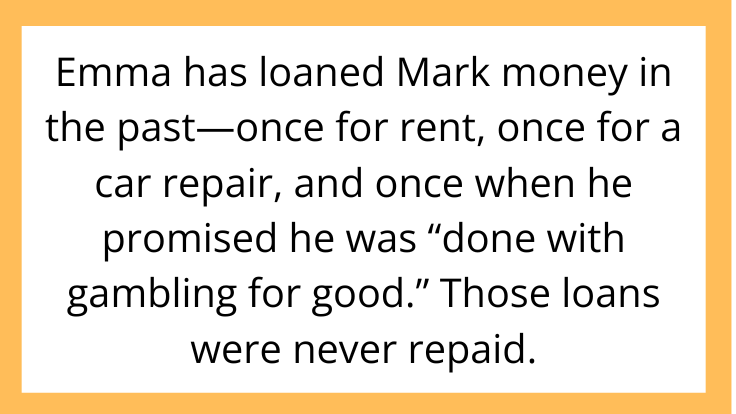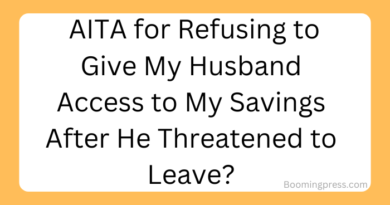AITAH for Refusing to Help My Brother Pay Off His Gambling Debt?
Family ties can be complicated, especially when money—and questionable choices—come into play. Today’s AITAH scenario explores a heated conflict between siblings when one is expected to bail the other out of a mess he created himself.
Let’s dive into the story and see who, if anyone, is really the villain.
The Backstory: A Pattern of Poor Decisions

The original poster, whom we’ll call Emma, is a 32-year-old accountant who has always been financially responsible. She paid her own way through college, bought her first home by 30, and prides herself on living within her means.
Her older brother, Mark, 35, has a very different track record. According to Emma, Mark has struggled with impulsive spending and gambling for most of his adult life. Over the past decade, he’s taken out multiple loans, racked up credit card debt, and borrowed money from nearly every family member.
Emma has loaned Mark money in the past—once for rent, once for a car repair, and once when he promised he was “done with gambling for good.” Those loans were never repaid.
The Breaking Point: A Desperate Request

Last month, Emma received a call from Mark. His voice was shaking. He confessed he’d lost thousands of dollars betting on sports, and now a lender was threatening legal action if he didn’t repay $15,000 immediately.
Mark begged Emma to cover the debt so he wouldn’t “lose everything.” He promised he’d pay her back within the year. Emma declined.
“I’m sorry, but I can’t do this again,” she told him. “I’ve helped you before and you didn’t repay me. I’m not comfortable funding this cycle anymore.”
Mark was devastated—and furious. He called her selfish and accused her of abandoning family in a crisis. Their mother later called Emma and asked why she would “turn her back on her own brother.”
Feeling conflicted, Emma turned to Reddit to ask: AITAH for refusing to bail out my brother again?
The Community Weighs In: Is It Ever Wrong to Say No?

Reddit’s r/AITAH community was quick to respond, and most commenters were firmly on Emma’s side.
Why Emma Is Not the Villain
-
Enabling Addiction: Many users pointed out that repeatedly rescuing someone from gambling debt only reinforces destructive behavior.
-
Repeated Broken Promises: Mark had already proven he wasn’t reliable when it came to repayment.
-
Boundaries Are Healthy: Saying no is not the same as abandoning someone—it’s recognizing that you can’t fix them.
One commenter summed it up perfectly:
“If he wants to change, he can get help. You’ve given enough.”
The Other Perspective: Family Obligation
A smaller group of commenters had sympathy for Mark. They argued that addiction is an illness, and family support can make the difference between recovery and collapse.
“If he ends up homeless or worse, would you regret not helping?” one user asked.
Others suggested that Emma could offer conditional help, such as paying the lender directly while requiring Mark to enter treatment.
Still, most agreed that any assistance should come with clear boundaries and accountability.
Setting Boundaries Without Guilt

This scenario raises a common dilemma: When does helping cross the line into enabling? And is it ever okay to walk away?
Experts often say the key difference is whether your support actually contributes to meaningful change. If your financial help simply resets the cycle, it’s not really help—it’s prolonging the problem.
Emma was clear: She didn’t want to keep bankrolling Mark’s choices. That doesn’t mean she doesn’t love him—it means she loves herself enough to stop sacrificing her peace and stability.
When Saying No Is the Right Choice

Sometimes, the hardest thing you can do for someone you care about is refuse to rescue them. But in many cases, that’s exactly what they need to finally confront the consequences of their actions.
If Emma had paid the debt, Mark might have felt temporary relief—but nothing would have changed long term. By setting a firm boundary, she’s forcing him to reckon with his decisions.
This doesn’t mean Emma can’t offer other kinds of support:
-
Encouraging Mark to join Gamblers Anonymous
-
Helping him find a financial counselor
-
Offering emotional support while he gets help
But ultimately, it’s Mark’s responsibility to change.
Takeaway: You’re Not the Villain for Protecting Yourself

In situations like this, it’s easy to feel guilt and pressure to “just help one more time.” But if helping comes at the cost of your financial security and mental health, it’s okay to say no.
Emma isn’t the villain here. She’s someone who learned the hard way that you can’t save people who don’t want to save themselves.



